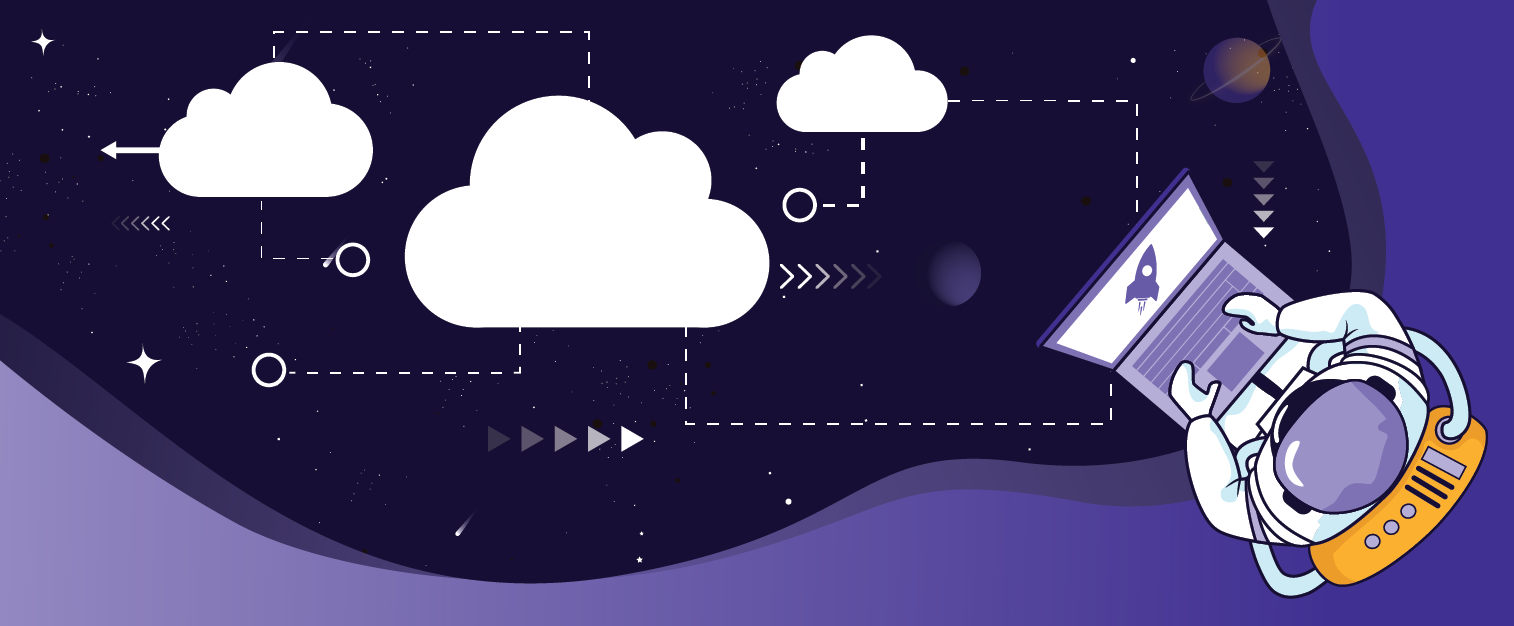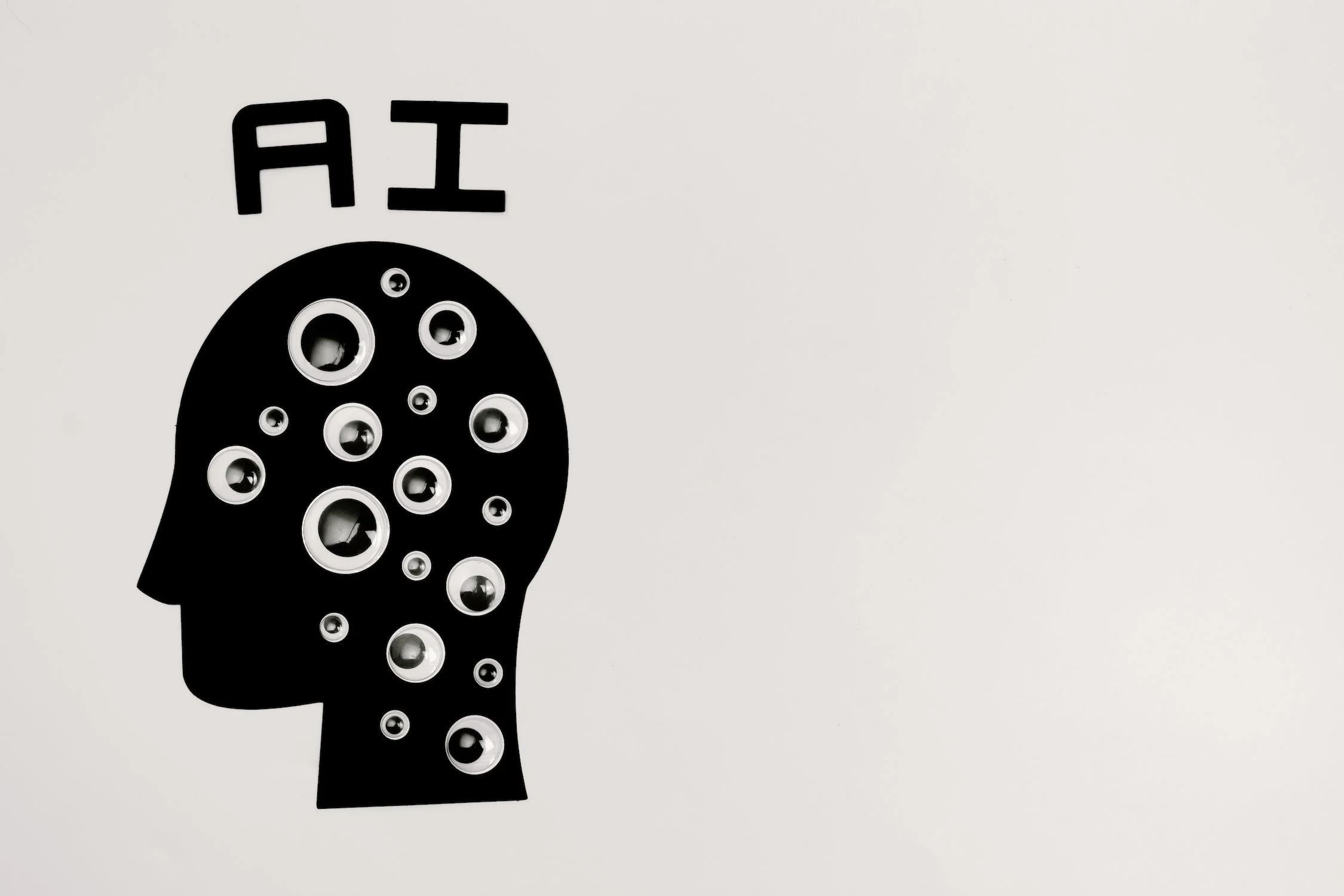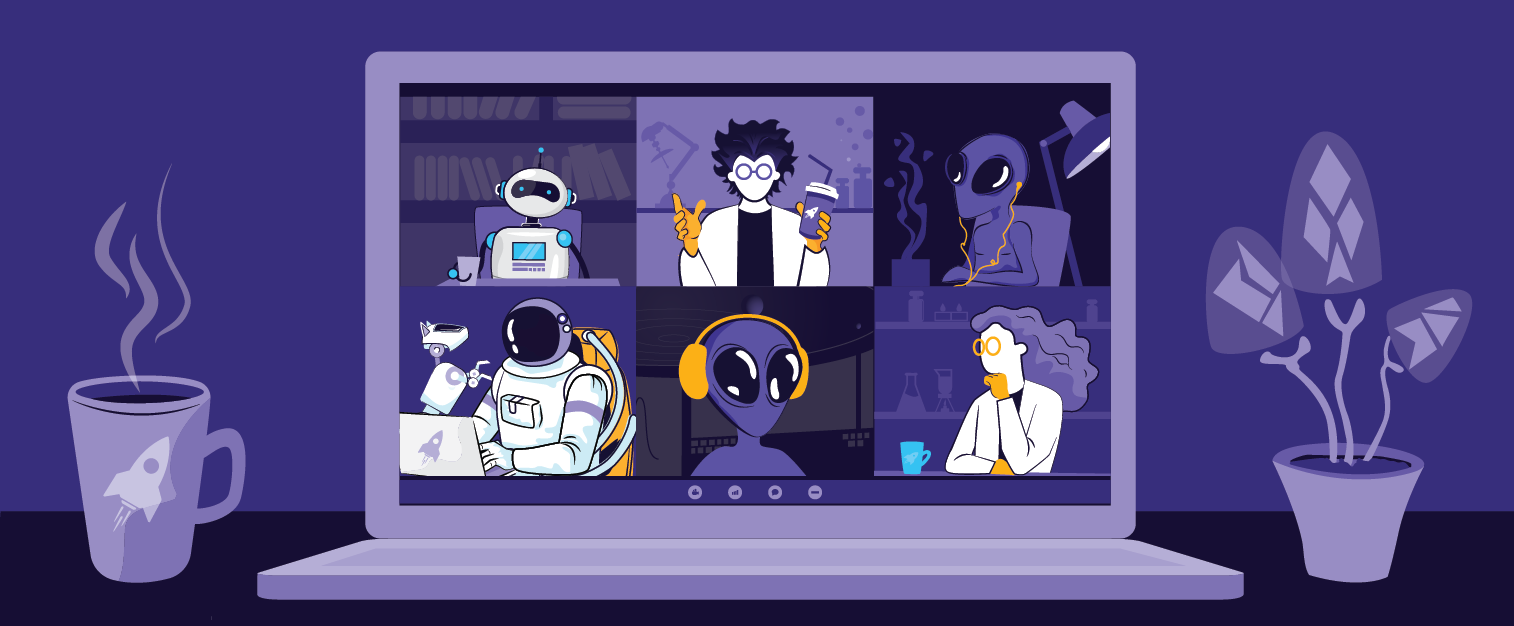Sending your data to our servers, please wait...





Oops... No results found.
Please try a different search phrase.
Digital Marketing 20 min read
AI in Marketing: How Artificial Intelligence Is Revolutionizing Digital Marketing
Written by Sarah Edwards
Content Writer @ Galactic Fed
Expert reviewed by Dallin Porter
Marketing Director @ Galactic Fed
Published 03 May 2023
The cat’s out of the bag, and there’s no going back now: Marketers, business owners, and stakeholders are realizing the value of artificial intelligence (AI), and in digital marketing, AI is officially the next big thing to enter the online brand-building and advertising arena.
AI-powered tech is being put to use to develop captivating content, gain actionable insights about target audiences, and outpace the competition in the digital marketplace. By following suit, your business can form stronger connections with its target audience, get more bang for its marketing buck, and enhance its brand.
Be that as it may, the mere thought of implementing such groundbreaking but complicated technology can be daunting. In the last few years, the digital marketing AI space has been flooded with new apps, tools, and software solutions, which can collectively make getting started with AI even harder.
In response, Galactic Fed wanted to take the mystery out of AI in digital marketing, and it’s why we’ve created the following comprehensive guide, covering topics such as:
- What digital marketing AI is
- How AI is reshaping the digital marketing landscape
- Digital marketing AI use cases
- Benefits and challenges of AI adoption
- Tips for introducing AI into your marketing strategy
With all that said, let’s dive in.
What is Artificial Intelligence in Digital Marketing?
At its core, AI is the science of developing intuitive and innovative machines. The technology is designed to mimic human intelligence while simultaneously thinking and acting rationally.
Artificial intelligence in digital marketing simply refers to AI solutions that are developed to support various marketing-related tasks. For instance, digital marketing AI can be used to do any of the following:
- Power chatbots
- Analyze the results of campaigns
- Assist with content creation
- Guide decision-making processes
These are only a few potential use cases for AI in digital marketing. As the technology continues to evolve, marketers will undoubtedly uncover new and exciting ways to incorporate AI into their brand-building and advertising efforts.

How AI Is Reshaping the Digital Marketing Landscape
The widespread adoption of AI technologies in the marketing industry is certainly contributing to the field’s rapid growth rate: According to Statista, the global AI market is expected to reach a value of $2 trillion by 2030.
While there are a plethora of use cases for AI in digital marketing, the majority of marketers are leveraging AI to assist with email marketing. As of 2022, over 80% of marketing industry experts had already incorporated at least one form of AI into their marketing workflow, and according to a Capterra survey, 63% of respondents use AI for email marketing. With that being said, let’s examine some other digital marketing AI use cases that are transforming the industry:
Use Cases for AI in Digital Marketing
Chatbots
In their earliest days, chatbots could only generate a relatively limited number of responses, which could be frustrating for consumers looking for product information or support. Fortunately, the advancement of AI technologies, such as natural language processing (NLP) algorithms, has significantly improved their capabilities.
Today’s dynamic chatbots can provide round-the-clock support for customers, answer a broad range of questions, and collect data for marketing purposes, among many other things. Their implementation stands to reduce the burden on customer service teams and help businesses capture more leads.
In terms of marketing, chatbots serve a number of key functions: First, they can help consumers find additional information about products, services, or pricing when their interest in making a purchase is at its highest. In addition, they can gather contact information, like email addresses and phone numbers, to upload to a marketing database for later use.
Predictive Analytics
Like most businesses, your organization probably collects massive amounts of data, and AI technology can help you put all of it to use by performing predictive analysis. Whereas descriptive and diagnostic analytics focus on what happens and why, predictive analytics provide insights into what actions you should take to achieve your marketing objectives and take the guesswork out of important marketing decisions.
Instead of relying on gut feelings or hunches, you can use quantifiable data to support your choices and increase the efficacy of marketing campaigns. The end result is an improved return on investment (ROI) and greater campaign performance.
Content Personalization
AI technologies can process historical data in real-time and use the insights they collect to serve personalized content to your customers. For instance, AI web tools can display unique ads or product suggestions by analyzing a customer’s past purchases.
The power of personalization cannot be overstated. According to McKinsey, 71% of consumers expect businesses to provide personalized interactions. Researchers also discovered that businesses that “excel at personalization” generate 40% more revenue than their counterparts.
Campaign Automation
Digital marketing AI is used to automate all sorts of critical processes. It can streamline behind-the-scenes activities, like collecting, sorting, and analyzing marketing data, and can also be used to set up and automate campaigns.
Automating campaigns and back-end processes can save your team time and money. You can devote more of your day to dynamic tasks like conducting consumer research, planning your next big product release, or crafting quality content.
Automating even a few tasks can provide a huge boost to productivity and set the stage for the continued growth of your thriving business.
Benefits of Leveraging Digital Marketing AI Tech
By now, you are probably already fantasizing about all of the ways that digital marketing AI could revolutionize your brand-building strategies. You should certainly be excited, as implementing some new, robust AI tools could make a major impact on your business.
With AI, you can accomplish all of the following goals:
Gain Actionable Insights into the Customer Journey
Understanding the customer journey is a persistent challenge for many brands, but AI makes it possible to obtain actionable insights into each customer’s journey in segments, from brand awareness to purchase.
You can track interactions across multiple channels, identify various paths to purchase, and pinpoint potential bottlenecks that are impacting your conversion rate, and with the right AI in place, you can get granular, tracking individual customer journeys to obtain high-level feedback that helps you focus on the big picture.
Optimize Campaign Content
Great content is the foundation of any marketing campaign. Whether you are taking to social media to generate buzz about a new product or supplying your audience with educational, on-site blogs, you need to make sure your content is captivating.
AI technologies are particularly effective at revamping and optimizing written marketing content. You can not only fix grammatical and syntax errors, but you can also restructure confusing sentences, ensure that the right keywords are used, and make your content more appealing to search engine algorithms.
Elevating your content creation capabilities with AI is a great way of climbing the rankings and breathing new life into your SEO campaign. Your audience will benefit, too, as every single line of copy will provide value.
Automate Redundant Processes
Redundant manual processes are simply wastes of time, but more importantly, engaging in too much manual work saps your team of its energy, making them less productive and damaging employee morale as a result. The good news is that you can reduce your team’s workload by automating such tedious tasks with AI.
Tapping into digital marketing AI’s automation capabilities also reduces the likelihood of human error. Your automation software can accurately capture and transfer audience data to your marketing platform and then help your team put it to use via analytics tools, automated campaign management functionalities, and other robust features.
Engage in More Specific Segmentation
Audience segmentation is the process of dividing your target audience into various subgroups, which enables you to target each group with tailored content that is relevant to their specific needs and goals.
You can use AI tools to divide up your audience based on a wide range of attributes, such as location, income, profession, education level, and age, and once you have segmented your audience, you can deliver personalized experiences to each group with front-end AI marketing tools.
Save Time
Imagine how much more productive you’d be if you were to suddenly eliminate several hours of work from your weekly to-do list. With digital marketing AI tools, you can do exactly that. Comprehensive AI technologies can integrate into your existing tech stack and assist with a broad range of marketing tasks.
With fully-featured solutions in place, you can streamline your reporting and data analytics processes, automate intake functions, and expedite content creation workflows, ultimately resulting in hours of saved time.
Reduce Costs
AI solutions can provide both direct and secondary cost savings. In terms of the former, AI helps you reduce your labor expenses by enabling the automation of key tasks. Naturally, the more functions you automate, the greater your cost savings will be.
As for the latter, you’ll be optimizing your campaigns and reducing waste. You can use predictive analytics tools to gauge the efficacy of future marketing content and make more strategic advertising investments.
Integrating AI into your digital marketing strategy will also increase your ROI and help you make improvements along virtually every meaningful marketing metric. You will be able to generate more leads, increase conversion rates, and bolster your revenue.
Potential Roadblocks to Implementing AI in Digital Marketing
There is no question that AI can provide a multitude of benefits for any business, but there are some challenges that you will likely encounter as you move to integrate AI tech into your operations.
Let’s examine a few of these potential hurdles and how you can overcome them:
Initial Investment Costs
Implementing an AI-powered marketing and data management solution can involve high initial expenses. In addition to the software licensing fees, you will likely have to bring in an outside team to configure the platform, migrate your old data to the new system, and bring your staff up to speed on the solution’s capabilities.
Fortunately, the initial investment costs will be offset by the increase in ROI that you will enjoy in the months following the transition, but if costs are a major concern for your business, there are a few workarounds that you could consider.
For instance, instead of investing in an integrated platform, consider purchasing a standalone tool and incorporating it into your marketing strategy. If you are satisfied with your ROI, you can purchase other standalone tools or take the leap and implement an all-in-one solution.
Poor Data Quality
Think of AI algorithms like finely-tuned race cars. A precision-engineered car is capable of achieving blistering speeds, maneuvering tight corners, and accelerating out of turns in a flash, but if you were to fill its fuel tank with run-of-the-mill gasoline, its performance would be significantly reduced, assuming it doesn’t stall out altogether,
The same basic concept applies to AI. Algorithms need access to an abundance of high-quality data to function properly, so you may need to implement some new data management tools before you invest in an AI solution.
Resistance to Change
Sometimes, employees simply don’t like change, preferring to keep using the tools they’ve become familiar with instead of learning the ins and outs of a new platform. While you have the final say as to which tools and solutions get implemented, you need your team on board if you want to achieve a strong ROI.
There are a few ways to address the hesitancy. First off, make sure to include your team in the process from the outset. Let them know that you are considering upgrading your tech stack, explain why, and encourage them to provide honest feedback.
From there, take note of their concerns and do your best to address them by highlighting how the new tools will benefit them and the business. When your team realizes that AI will make their lives much easier, they will likely be much more receptive to the incoming changes.
Compliance Concerns
AI technologies are incredibly efficient at harvesting consumer data, but despite the fact that having access to more information about your target audience can be beneficial, it also creates compliance and ethical concerns.
Over the past several years, state and national governments around the globe have been taking steps to protect consumer privacy, a movement that has led to the development of sweeping data protection regulations like the California Consumer Privacy Act (CCPA) and the General Data Protection Regulation (GDPR).
While the specific provisions of each act vary, each of them outlines consumer privacy rights that impact how you can gather, store, and use their data. These laws also create severe penalty schedules that are designed to hold violators accountable.
To avoid any run-ins with regulatory authorities, your business needs to create a compliance plan and ensure that it is using artificial intelligence in a responsible, ethical manner.
A Lack of Awareness or Confidence
As part of a 2023 report, Influencer Marketing Hub conducted a survey among marketing professionals to determine what factors were discouraging them from adapting to AI. Approximately 41.9% of respondents cited a “lack of understanding” about the technology as the reason they were not using its tools.
Even if your team has a general understanding of what digital marketing AI tools are, they may believe that these solutions are too complex, and such a lack of confidence can contribute to adoption hesitancy, which makes it tough to get everyone on board.
To remedy the issue, consider scheduling a demo of the software solution you are implementing and invite your team to attend. When everyone sees how user-friendly and intuitive the program is, they will be more open to using it.
5 Tips to Get Started with Digital Marketing AI
Now that you know the lay of the land when it comes to digital marketing AI, you are ready to incorporate the technology into your business processes. On that note, here are a few easy-to-follow tips that you can use to ensure a smooth transition to artificial intelligence solutions:
-
Meet with Your Team
Surprising your staff with some hastily-adopted technology tools is a good way to erode trust and contribute to adoption hesitancy. Before you make any final decisions about AI, schedule a meeting with your team and be transparent about your aspirations. Let them know which solutions you are considering, solicit feedback, and ask them what sort of tools they believe would add the most value to the business.
While you provide a greater view of the big picture, staff members from various departments can provide a different perspective on the marketing challenges facing your business. Since they view problems from unique angles, they may be able to shed light on needs or issues that you overlooked.
-
Assess Your Existing Tech Stack
Quality data lays the foundation for successful AI implementation. As such, you must evaluate the capabilities of your existing technology stack before committing to any new solutions.
Pay particularly close attention to your data management tools during your tech evaluation, and if necessary, begin researching supporting technologies to determine whether you need to replace any legacy tools before, during, or after your AI solution deployment.
-
Define Your Why
As soon as you conduct a search for digital marketing AI tools, you will be inundated with options. To avoid information overload, we suggest that you define your “why” before starting your product research.
In other words, identify what you hope to achieve by adopting artificial intelligence technologies. List out each goal and determine which tools and features you need to accomplish your objectives.
Once you do so, finding the right solution becomes far easier, as you’ll be able to compare your tool and feature wishlist with the functions offered by each prospective solution. If the platform you are considering doesn’t offer what you need, you can quickly eliminate it from consideration.
-
Choose Between Standalone and Integrated Solutions
Integrated solutions connect to and communicate with your existing tech stack. These all-in-one AI platforms include a variety of tools, features, functions, and capabilities. As such, they can meet most of your marketing needs, but they are often harder to implement and are more costly than standalone tools as a result.
Standalone digital marketing AI applications are the exact opposite: They are easy to deploy and extremely cost-effective, but they perform very narrow sets of functions. For instance, a standalone app may only assist with written content optimization.
When choosing between these types of platforms, you should consider two factors: your budget and your timetable. If you have a tight budget and want to start using AI immediately, a standalone application is probably the better choice, whereas if you have adequate resources and want a do-it-all solution, an integrated platform will be the right fit for your business.
-
Take Things Slowly
With so many businesses already using digital marketing AI tools, you might feel as though you’re in danger of losing ground within your market. While you should certainly make adopting AI technologies a priority, rushing to deploy new software can lead to disaster.
Take things at your own pace, do your research, and get your team involved. After you have set the stage for a smooth transition, start the implementation process. Make sure to take advantage of free demos or trial opportunities, as doing so will help you find the ideal solution for your business.
The Bottom Line: Implementing AI in Digital Marketing Is Essential
Marketers the world over have realized the value of digital marketing AI and are adopting these technologies at a lightning-fast pace. If you want to maintain your edge in the rapidly evolving digital marketing ecosystem, you need to do the same.
While you can certainly implement new tech gradually, you need to start working on your digital marketing AI strategy. Put our actionable tips to use, create a game plan, and do your research. With a little diligence, you can find the ideal AI tools for your business.
Here is one last hack that will accelerate your AI implementation journey: Consider partnering with a digital marketing firm that is already using AI. A digital marketing AI partner can help you take your brand-building efforts to the next level and help you avoid the overhead costs associated with purchasing new tech. It’s an appealing proposition, at the very least!

Sarah Edwards
Content Writer @ Galactic Fed



